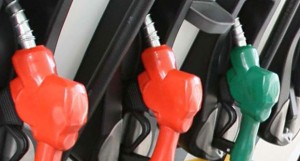New fuel price hikes in effect
MANILA, Philippines–Oil firms have hiked pump prices by 45 centavos per liter for gasoline and 10 centavos per liter for diesel from July 1.
Petron, Shell, Chevron, and Seaoil imposed 45-centavo-per-liter hike for gasoline and 10-centavo-per-liter hike for diesel from 6 a.m. Tuesday. At the same time, independent oil players Phoenix Petroleum, Total and PTT Philippines will impose similar adjustments for the two major fuel products.
Kerosene prices were maintained from last week’s level, oil firms said.
Other oil firms have not formally announced fuel price adjustments for gasoline and diesel but are expected to follow suit since most of the country’s fuel sources are imported and are similarly vulnerable to price shocks.
LPG prices for the month of July, meanwhile, fell slightly on softer demand. Petron announced it would roll back household LPG prices by 10 centavos per kilogram and autoLPG by 6 centavos per liter. “These reflect movements in the international oil market,” Petron said in its advisory.
Including the price movements this week, the year-to-date total adjustments stand at a net decrease of 85 centavos per liter for diesel and a net increase of P1.75 per liter for gasoline.
This week saw the third straight weekly increase in fuel prices due to supply concerns sparked by sectarian violence in Iraq. Last week, oil firms imposed pump price hikes of P1.30 per liter for gasoline and P1.20 per liter for diesel–the highest so far for 2014. The last time fuel price hikes reached the P1 level was in February 18, when oil firms imposed a P1 per liter increase for gasoline, 50 cenatavos for diesel, and 25 centavos for kerosene.
Zenaida Y. Monsada, director of the DOE-Oil Industry Management Bureau, said prices “see-sawed” during last week’s trading period, eventually weakening toward the weekend, as Islamic countries completed ordering inventory for the monthlong observance of Ramadan.
Private analysts said anticipation of lower demand from the U.S. (the world’s top fuel consumer) amid weak consumption and jobs data also helped soften global prices. Still, supply concerns over the lingering conflict in oil-exporting Iraq prevented prices from dropping further.
